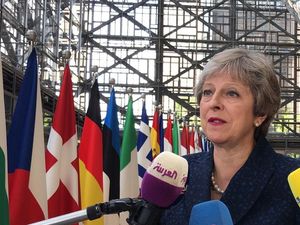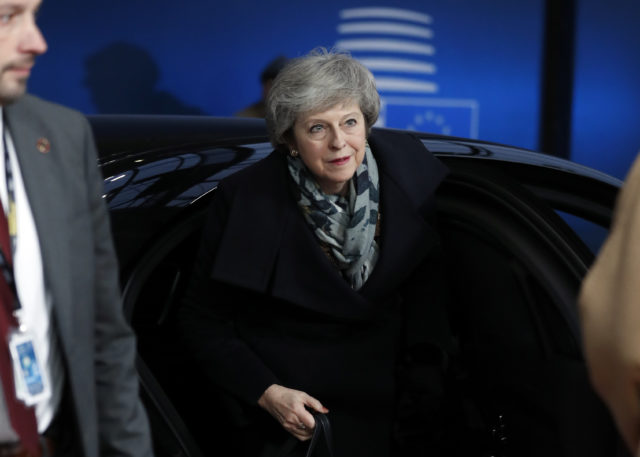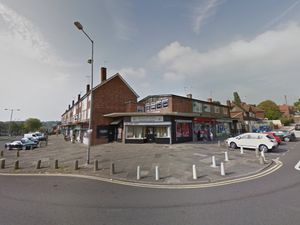EU heaps pressure on PM with attack on lack of clarity over Brexit
After Theresa May addressed leaders in Brussels, Donald Tusk said the Withdrawal Agreement could not be renegotiated.

Theresa May is under mounting political pressure after EU leaders rejected her attempts to win fresh concessions to the agreed Brexit deal and openly criticised her negotiating strategy.
The Prime Minister went to Brussels seeking a way to get the Withdrawal Agreement through a heavily divided Commons, insisting she could do it but had to be able to convince MPs the UK would not find itself tied to the EU indefinitely through the Northern Ireland “backstop”.
She urged EU27 leaders join her to “work together intensively to get this deal over the line in the best interests of all our people”.
But after listening to her appeal, European Council president Donald Tusk said EU leaders had reaffirmed their determination that there could be no renegotiation.
He said they had expressed a “firm determination” to work “speedily” to ensure that there was an agreement on the future relationship in place by the time the transition period ends in December 2020, so the backstop was not needed.
European Commission president Jean-Claude Juncker went further and criticised Mrs May’s lack of clarity over what she was seeking from the future relationship.
“Our UK friends need to say what they want, instead of asking us to say what we want,” he said.
“So we would like, within a few weeks, our UK friends to set out their expectations for us because this debate is sometimes nebulous and imprecise and I would like clarifications.”
He added: “We don’t want the UK to think there can be any form of renegotiation, that is crystal clear. We can add clarifications but no real changes.
“There will be no legally binding obligations imposed on the withdrawal treaty.”

Arriving for the second day of the summit, Mrs May went straight into a one-to-one meeting with French President Emmanuel Macron.
Pooled footage from the start of the main summit gathering showed Mrs May apparently engaged in a tense exchange of views with Mr Juncker, with the Prime Minister looking visibly angry.
The EU hardball approach appears to leave Mrs May with limited room for manoeuvre during the countdown to the UK’s departure on March 29.
The Prime Minister, who on Wednesday survived a bruising vote of no confidence by Tory MPs, said a package of assurances around the backstop could “change the dynamic” at Westminster.
At the same time, she made clear that a failure by EU leaders to offer concessions risked the collapse of the whole agreement, with the UK leaving in March in a disorderly, no-deal Brexit.
She ended with a highly personal appeal to EU leaders to put their trust in her to deliver on her promises and to give her the political room for manoeuvre she needs.
Czech Europe Minister Ales Chmelar said the meeting had not been bad but that “nobody knew beforehand what would be the solution”.
He told BBC Radio 4’s Today programme: “I know there was in the room a strong willingness to offer something, but at the same time it would put, most probably, into question the backstop for Ireland.
“It was almost an impossible situation and technically speaking there was not an easy way out.”
Shadow Brexit minister Sir Keir Starmer said Mrs May had failed to achieve “meaningful changes” and called for a meaningful vote on the deal before Christmas.
He said: “We cannot go on like this. The Prime Minister should reinstate the vote on her deal next week and let Parliament take back control.”
But Cabinet Office Minister David Lidington rejected this and defended Mrs May’s handling of the talks, telling Today: “Anybody who has heard Theresa May in debate, anybody who has heard her around the Cabinet table, knows there is a very clear plan.”
He described the talks as “a welcome first step that was the removal of uncertainty” over the EU’s intentions, because it had shown it wanted a “speedy UK trade deal” that would remove the need for the backstop in the first place.





